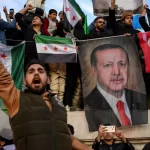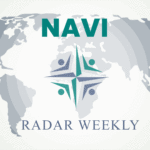Subscribe to NAVI Radar Weekly here
Focus Point: Regional Security- Transatlantic Security/NATO
Innovation and critical infrastructure in focus as energy security experts meet at NATO Headquarters | NATO
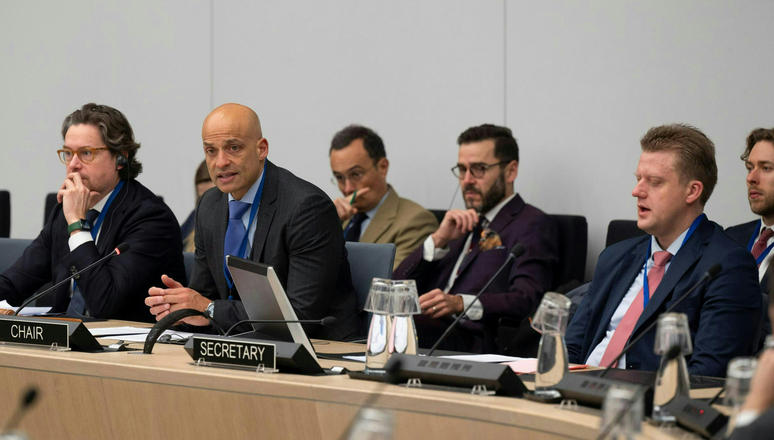
By NATO | 09.12.2024
Experts from Allied countries, think-tanks, academia and international organisations gathered at NATO Headquarters (on 9 December 2024), for the annual roundtable on energy security hosted by NATO.
They shared views on recent energy developments, including the changing critical infrastructure landscape, and their implications for our collective security. They also discussed the energy transition and the use of innovative energy technologies and sources for the military, as part of NATO’s Energy Transition by Design.
This initiative aims to strengthen coordination amongst Allies, as they continue to adapt their armed forces and further improve their effectiveness. Read more…
Focus Point: Regional Security- Middle East
Assad’s Downfall in Syria: Who Wins and Who Loses? |The Modern War Institute

By Haleigh Bartos, John Chin and Sydney Laite | 10.12.2024
Over the weekend, Bashar al-Assad’s reign came to an end after rebels overwhelmed government forces. The rebels’ victory punctuated the lightning gains they made largely over the past two weeks. Since late November, rebel forces took Syria’s second-largest city, Aleppo, before going on to claim Hama and Homs and encircling Damascus—prompting Assad to flee the country and marking an end to the fifty-three-year-long Assad family rule.
The regime change in Damascus has profound if not yet fully appreciated geopolitical implications for the region. From the very start, the civil war in Syria has been complex—with few heroes and many victims—in part owing to the vast involvement of outside players with varying degrees of influence and objectives. These actors have lots to lose, potentially win, or figure out in a post-Assad Middle East.
Intervention in Syria by foreign actors long predates the country’s civil war. Over decades, both direct and indirect intervention—through support for (or opposition to) the Assad regime—has left various foreign actors with relative levels of influence in Syria. These include Russia, Turkey, China, Iran, the United States, Europe (particularly through the activities of France), and Israel.
Just as the Soviet Union had by far the most foreign influence over the Syrian Ba’ath regime during the Cold War, Russia had reestablished Moscow’s dominant share of bilateral influence in Syria during the recent civil war, though Russia’s influence capacity in Syria has declined steadily in recent years.
Russia is not alone in seeing its influence decrease. Indeed, as Syria’s economy shrank and its international trade dwindled due to Western sanctions, the influence capacity of most outside powers has fallen. Turkey is the only surveyed country that has actually seen its influence capacity in Syria rise in recent years. Which actors will manage to salvage a measure of influence with a new regime in Damascus remains to be seen. But each of them faces a unique set of implications from Assad’s fall. Read more…
Focus Point: Regional Security- Transatlantic Security/NATO
NATO Allies join forces to enhance the security of critical undersea infrastructure | NATO
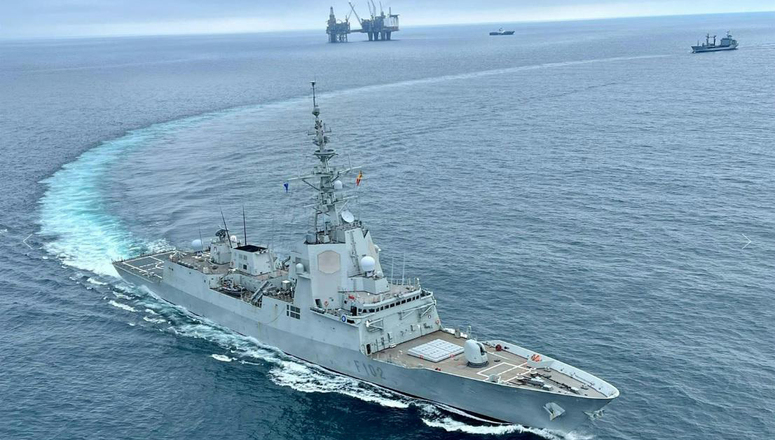
By NATO |10.12.2024
Military and civilian experts from across NATO met at NATO Headquarters on Tuesday (10 December 2024) to ramp up further cooperation to counter threats to critical undersea infrastructure.
In May, NATO launched a new Maritime Centre for the Security of Critical Undersea Infrastructure within the Alliance’s Maritime Command in the United Kingdom.
With growing threats to subsea infrastructure, NATO created earlier this year a Critical Undersea Network to improve information sharing and coordination for the security of undersea cables and pipelines. The Network brings together stakeholders from Allies’ governments, industries, NATO’s civilian and military headquarters as well as other relevant actors. Read more…
Focus Point: Security and Defense Policy- Russia-Ukraine War
Russia threatens to retaliate after Ukrainian ATACMS strike in Rostov | France 24
By News Wires | 11.12.2024
Moscow on Wednesday accused Kyiv of firing US-supplied ATACAMS missiles on a military airfield in its southern Rostov region and threatened to retaliate. Russian President Vladimir Putin said that Ukraine’s “destructive” approach made peace impossible.
Russia on Wednesday vowed retribution against Ukraine, accusing Kyiv of firing Western-supplied missiles on a military airfield in its southern Rostov region.
President Vladimir Putin has previously threatened to launch a hypersonic ballistic missile at the centre of Kyiv if Ukraine did not halt its attacks on Russian territory using US-supplied ATACMS missiles.
And one US official said Wednesday that Russia might soon target Ukraine with another of its new Oreshnik missiles.
Hours after Ukraine’s overnight attack, Russia claimed its troops had recaptured territory in its western Kursk region, where Ukraine occupies swathes of territory. Read more…
Focus Point: Regional Security- European Security
NATO chief asks European citizens to ‘make sacrifices’ to boost defence spending | Euronews
By Alice Tidey & Paula Soler & Aïda Sanchez Alonso | 12.12.2024
Citizens of NATO member states should “accept to make sacrifices” such as cuts to their pensions, health and security systems in order to boost defence spending and ensure long-term security in Europe, the head of the military alliance said on Thursday.
“Today I call for your support,action is urgent. To protect our freedom, our prosperity and our way of life, your politicians need to listen to your voices. Tell them you accept to make sacrifices today so that we can stay safe tomorrow,” Mark Rutte said during a speech in Brussels.
“Tell them they need to spend more on defence so that we can continue to live in peace, tell them that security matters more than anything,” he added. Read more…
Focus Point: Regional Security- Africa
Ethiopia and Somalia agree to end bitter Somaliland port feud | BBC
By Kalkidan Yibeltal and Basillioh Rukanga | 12.12.2024
President Recep Tayyip Erdogan (C) said the agreement was “the first step towards a new beginning”
Ethiopia and Somalia have agreed to end their bitter dispute over Addis Ababa’s plans to build a port in the breakaway republic of Somaliland following talks in Turkey.
Turkish President Recep Tayyip Erdogan welcomed the “historic agreement”, which he said would eventually ensure landlocked Ethiopia’s access to the sea.
At the press conference he held hands with Ethiopian Prime Minister Abiy Ahmed and Somali President Hassan Sheikh Mohamud, who both agreed to respect one another’s “sovereignty”.
The two neighbours have been at loggerheads since January when Ethiopia signed a maritime deal with Somaliland – which Somalia considers as part of its territory.
It prompted fears of a wider regional conflict as Egypt has been backing Somalia – largely due to its anger with Ethiopia for building a dam on the River Nile.
Turkey has in recent years become an important geopolitical player in the Horn of Africa as it has close economic ties with Addis Ababa and security deals with Mogadishu. Read more…
Focus Point: Regional Security- Indo-Pacific
How South Korea’s turmoil will reverberate beyond its borders | Chatham House
By Dr Edward Howell | 12.12.2024
The sudden declaration of martial law this month by South Korean President Yoon Suk Yeol was motivated largely by domestic political divisions. Though martial law was revoked hours later, the consequences will reverberate far beyond the country’s borders.
For now, democracy remains alive in South Korea. Nevertheless, the failure of the motion to impeach President Yoon underscores the likely long-lasting consequences of the actions by the president, who faces ongoing domestic opposition and must now try to salvage a tarnished national and international reputation.
After opposition parties filed a motion to impeach Yoon, all but three of the 108 members of the ruling People Power Party boycotted Saturday’s vote. With the ruling party’s lawmakers walking out of the National Assembly chamber before the vote, any hopes that the motion would swiftly pass collapsed, as a quorum failed to be reached.
Yoon may hold on to his presidency for now, but inter-party factionalism looks to continue as the main opposition grouping, the leftist Democratic Party, plans to hold another vote to impeach him at the end of this week. Read more…
Focus Point: Regional Security- Middle East
EU launches Humanitarian Air Bridge operation for Syria to deliver emergency supplies and boosts humanitarian funding | The EU Commission
PRESS RELEASE | 13.12.2024
The European Commission is launching a new Humanitarian Air Bridge operation for those most in need in Syria, to deliver emergency healthcare and other essential supplies, as well as increasing its humanitarian funding.
President of the European Commission, Ursula von der Leyen, said: “The collapse of the Assad regime offers new hope for the Syrian people. But this moment of change also carries risks and brings hardship. With the situation on the ground so volatile, our help to the people of Syria is ever more important. This is why we have increased our humanitarian funding for this year, to more than €160 million. We are also launching a humanitarian air bridge carrying vital supplies, such as food, medicines and shelter items. I will be further discussing the delivery of humanitarian aid in my meeting with President Erdogan on Tuesday. We stand with the people of Syria.” Read more…
Focus Point: Regional Security- Middle East
Turkey’s Syria Conundrum|National Interests
By Robert Ellis | 14.12.2024
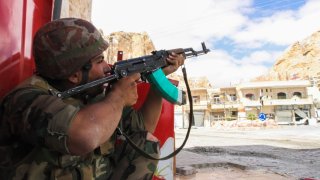
In a gaffe at Harvard University in 2014, then-Vice President Joe Biden, in a Q&A, stated that America’s allies in the region, Turkey, the Saudis, and the Emirates, were the largest problem in Syria.
“They were so determined to take down Assad, and essentially have a proxy Sunni-Shia war, what did they do? They poured hundreds of millions of dollars and tens of tons of weapons into anyone who would fight against Assad—except that the people who were being supplied, were al-Nusra and al-Qaeda, and the extremist elements of jihadis who were coming from other parts of the world.”
An interim Syrian government has formed. Yet, given the influence of HTS, there is concern about its direction.
In January 2017, Russia, Turkey, and Iran convened a meeting in Astana in an attempt to end the six-year conflict in Syria. The meeting was attended not only by the Syrian government but also by the Syrian opposition and a UN envoy.
Russian foreign minister Sergei Lavrov proposed a draft constitution for a settlement, which the Syrian opposition rejected. Nevertheless, it contains elements that could provide a basis for a resolution. For example, it proposed dropping the “Arab” from the country’s official name, the “Syrian Arab Republic,” and rejecting Islamic sharia as the basis for law. It also recognized Kurdish cultural autonomy and the equal use of Arabic and Kurdish in this respect.
As Syria’s new government has an acute need for international support, not least financially, the Russian draft merits further study. Read more…
Thank you very much for reading.
The NAVI Research Institute is the research division of NATO Veterans Initiative - NAVI that provides a unique perspective to transatlantic leaders and societies on peace and security through the lens of NATO's founding principles of rule of law, democracy, human rights, and individual liberties. The NAVI Research Institute was officially established by the NAVI Board on July 16th, 2023.
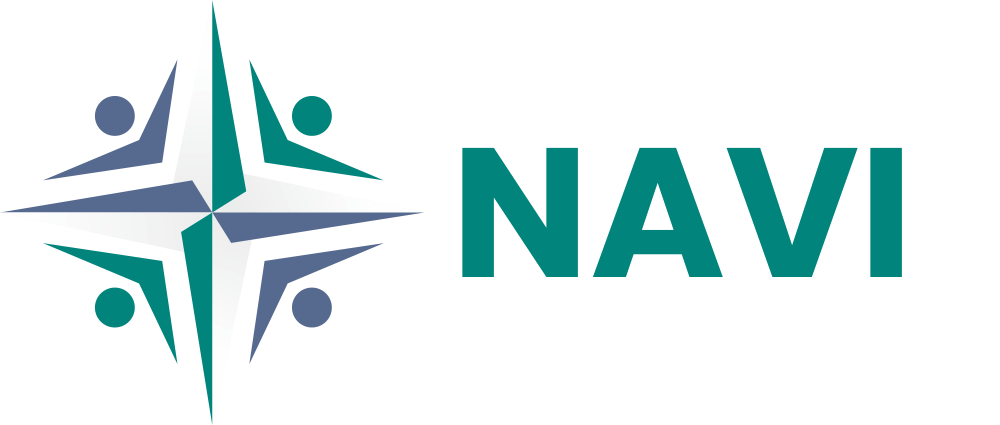
![NAVI-PROJE-[Recovered] Radar Weekly](https://nato-veterans.org/wp-content/uploads/2024/05/NAVI-PROJE-Recovered-696x392.gif)
